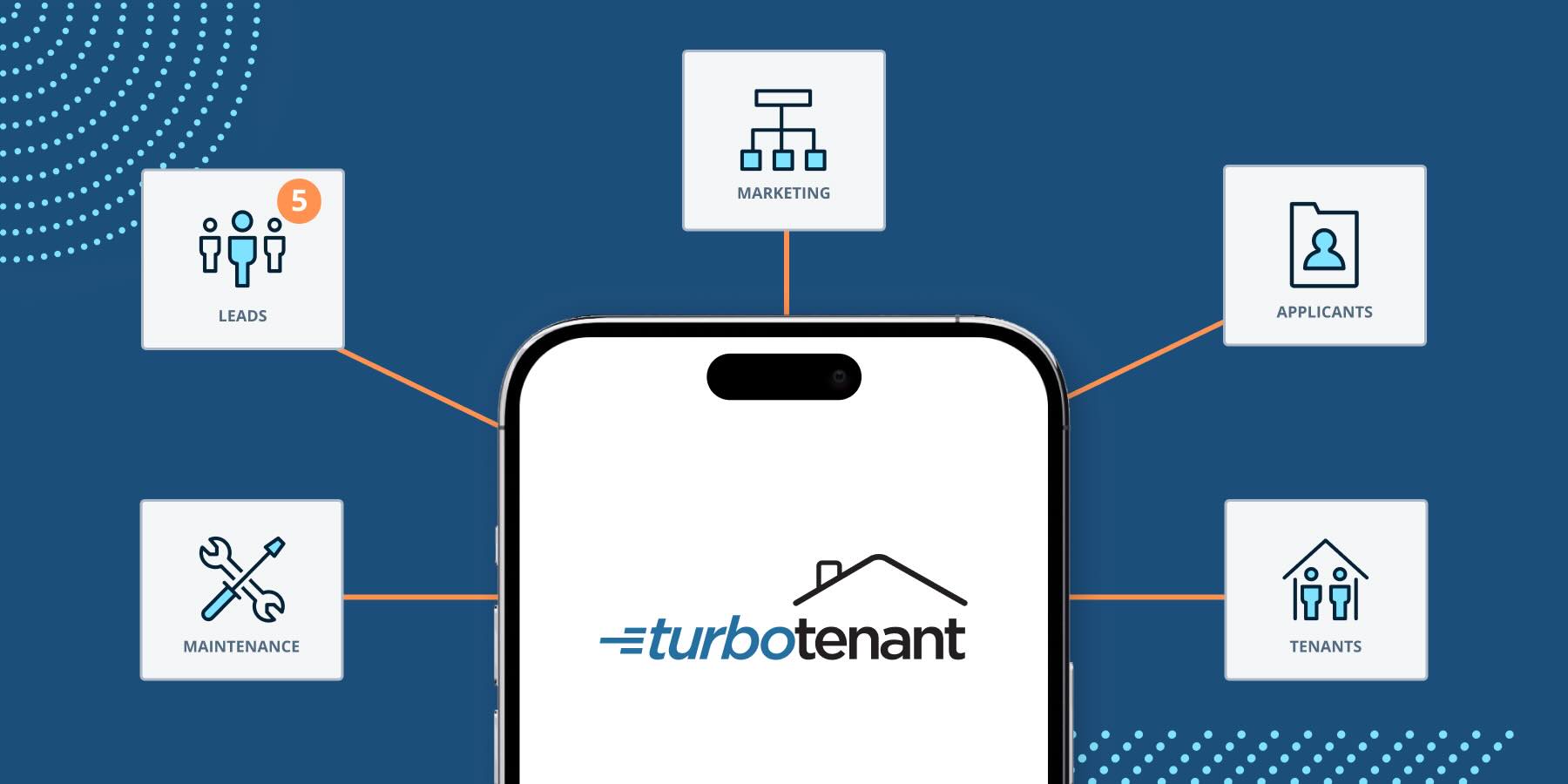So, you’re considering entering rental property ownership and learning how to be a landlord in Pennsylvania. Numerous paths exist to become a landlord, from renting out a spare room in your house to running an apartment complex in another town.
No matter how you plan to get into rental property operation, we have everything you need to jumpstart your new career or side hustle. TurboTenant’s free property management software streamlines all parts of the landlording process. So, whether you need assistance with rental advertising, rent collection, or even financial management, we’ve got you covered.
This guide will cover everything you need to know about becoming a landlord in Pennsylvania and demonstrate how TurboTenant can help.
Let’s get started.
Research The Market
Though countless elements contribute to a successful rental property, much of it boils down to one crucial factor: location. Whether you already live in a particular place or want to purchase a remote rental property, you must thoroughly research local real estate trends. By doing so, you can ensure that entering the rental market will be a profitable move.
As you research, consider whether your desired location has sufficient economic stability and job opportunities to support your prospective tenants. You’ll also want a location with a relatively high or growing population. After all, you may struggle to find tenants in a town with just a few hundred people, for example.
Next, keep in mind the quality of each neighborhood and its proximity to amenities like public transportation and grocery stores. But you should also consider affordability and how many rental properties are for sale in a neighborhood.
Finally, check into any legal requirements that may be present for landlords. Although Pennsylvania has no state-wide licensing requirement, Philadelphia, Scranton, and other municipalities require landlords to have rental licenses.
Still can’t decide where to rent? Use TurboTenant’s rent estimate calculator to understand how much you could charge in different locations.
Do Some Math
Once you narrow down your search, you’ll have to calculate figures for each property you have in mind. Factors like cash flow, local rent-to-income ratios, and rental property ROI will all influence whether or not your rental investment is profitable.
As you crunch the numbers, factor in any renovations a rental property may require. If a property seems like a great deal but needs considerable work to be made livable, you might decide that the impact on your bottom line isn’t worthwhile.
If these calculations seem a little daunting, don’t worry; this is just the start of the calculator tools TurboTenant offers. Check out our landlord toolbox to find additional calculators to assist you during every step of the rental property management process.
Read Up On Local Landlord-Tenant Law
The U.S. government has specific federal laws to ensure fair treatment for landlords and tenants in the rental relationship. These include the Fair Housing Act, the Fair Credit Reporting Act, and the Americans with Disabilities Act.
Pennsylvania also has several state-specific regulations that landlords and tenants must follow. Understanding all relevant rental housing regulations is crucial to learning how to be a landlord in Pennsylvania.
We’ll dive into the most common now.
Basic Landlord-Tenant Laws in Pennsylvania
Security deposit rules: Landlords in Pennsylvania can charge up to two months of rent as a security deposit. After a tenant has lived in the unit for over a year, landlords must store the deposit in an interest-bearing account and return any accrued interest to the tenant.
Entry requirements: Pennsylvania law does not specify a required notice period for tenants before a landlord can enter the dwelling unit. Generally, landlords should provide reasonable advance notice, typically between 24 and 48 hours, except in case of emergency. Doing so should help landlords avoid violating the tenant’s right to privacy.
Eviction laws: Landlords in Pennsylvania may evict tenants for valid reasons, which include nonpayment of rent, lease violations, or committing illegal activity on the property. The landlord must notify the tenant to start the eviction process. A 10-day Notice to Pay or Quit is mandatory for nonpayment of rent. For lease violations, landlords must provide a 15-day Notice to Quit if the tenant has lived in the unit for less than a year, and a 30-day Notice to Quit if the tenant has lived there for over a year.
Rent control: Pennsylvania does not have any state-wide rent control laws. Therefore, once a lease term ends, landlords may raise rent by any amount they deem appropriate.
Lease breaking: If a tenant leaves a property before the lease ends, they must continue paying rent until the original lease term is complete. However, tenants can break the lease without penalty under specific circumstances. These include starting active-duty military service, if the rental unit is unsafe or uninhabitable, or if the landlord harasses the tenant and violates their right to privacy.
Use Property Management Software
Brushing up on landlord-tenant law and figuring out where to buy rental property is just the beginning of learning how to be a landlord in Pennsylvania. Before you welcome your first tenants, you’ll have to add quite a few other items to your to-do list.
However, you don’t have to do it all alone. Although being a landlord involves many moving parts, you can use TurboTenant’s property management software to handle some of the more tedious parts of the process. TurboTenant centralizes all aspects of a landlord’s work, including secure document storage and financial management.
Our program will save you valuable time and money while helping you comply with all relevant rental laws. The landlord hub also allows you to improve your communication with tenants, ultimately increasing occupancy rates at your rental properties.
Market Your Property
Once you have your paperwork together and your rental property ready, don’t just wait for tenants to apply. Instead, advertise your rental property by crafting high-quality listings that appeal to as many interested tenants as possible.
Your listing should showcase all the best aspects of your rental. Consider hiring a professional photographer to capture high-quality images of your place and price your rental property as competitively as possible to attract more potential renters.
If you use TurboTenant to market your rental property, you can build listings using AI and advertise across dozens of different websites with the push of a button. This free feature allows you to manage potential leads in one central location without juggling different accounts and websites.
Above all, when marketing your rental property, be sure not to violate the Fair Housing Act. Discriminatory advertising can lead to civil and financial penalties.
Collect Rental Applications Digitally
As renters show interest in your property, begin collecting applications. These forms contain crucial information, such as employment status, rental history, and income levels. By gaining this insight, landlords can make informed decisions during the tenant selection process.
Though tenants often fill out paper applications, TurboTenant allows landlords to send an online application to interested renters by text or email. Doing so eliminates the need for paper applications, which can become unwieldy and confusing. Plus, you can store all your online applications in one location instead of managing numerous printed applications.
Screen Tenants Thoroughly
Receiving all those applications is just the start of the tenant selection process. After you collect information from prospective tenants, you should conduct thorough tenant screenings to ensure you select the most qualified tenant possible.
Once again, you’ll have to comply with all regulations outlined by the Fair Housing Act. All tenants must be screened equally, ideally using industry-standard questions.
To that end, TurboTenant offers tenant screenings, paid for by the tenant, that cover some of the most essential information you need to know about renters. Financial information, credit history, and criminal background checks all come standard. However, it’s worth noting that landlords in Pennsylvania must consider each applicant with a criminal history on a case-by-case basis and apply these considerations equally across all applicants.
TurboTenant will even check eviction history against 27 million records. And, if you want to verify the income the tenant provides, you can do so by upgrading to a Premium membership.
Use a Legally Compliant Lease
As you set up your first rental, it’s time to create a legally compliant lease agreement. These contracts clarify both the tenant’s and the landlord’s respective rights and responsibilities in the rental relationship, so landlords must use the correct type of lease. Even if you only have a single rental unit, a lease will help avoid potential tenant conflicts.
Of course, you can’t depend on just any old lease you find online. But you can end your lease search now and use TurboTenant’s state-specific lease agreement templates to create a lease that adheres to Pennsylvania law. For unlimited lease agreements, consider upgrading to Pro or Premium, the latter of which includes e-sign capabilities to save you even more time.
Lock Down Maintenance Requests
As in all states, landlords in Pennsylvania must maintain rental units in a safe and livable condition, also known as the warranty of habitability. Keeping rental units well-maintained will increase your overall tenant satisfaction. After all, who would want to rent a space with a leaky ceiling or an unreliable water heater?
TurboTenant streamlines the maintenance process for both landlords and tenants. First, tenants can submit maintenance requests online. Then, the landlord can receive and review the request and determine how to address the issue. This workflow will help you keep thorough records of maintenance issues, including the cost and the repair timeline.
You can upgrade to our Maintenance Plus plan to avoid conducting maintenance altogether. This option puts all maintenance requests in the hands of our thoroughly vetted maintenance team, which will receive, reply to, and handle maintenance issues, only requesting input from the landlord if needed.
Collect Rent Online
While collecting paper checks or in-person payments may seem more reliable, both you and your tenant can benefit from collecting rent online. Tenants can confidently and quickly pay rent using TurboTenant’s secure online rent portal, which enables autopay, automatic reminders to pay rent, and automatic late rent fees if rent becomes overdue.
Payments automatically appear in TurboTenant and are deposited to the landlord’s dashboard, allowing you to easily track which tenants have paid rent and which may still need to. Perhaps best of all, this feature is free for landlords, though tenants must pay a small fee to use a credit or debit card. (ACH deposit is free.)
Streamline Rental Property Accounting
Now, it’s time to discuss one of the more involved and perhaps less enjoyable parts of rental property ownership: rental accounting. You need to maintain organized records and thoroughly track all income and expenses. And, while all of that financial management may sound stressful, it’s a crucial element of being a landlord in Pennsylvania.
Avoid relying on general programs like QuickBooks and spreadsheets to manage your money as a landlord. Instead, you should use accounting software designed specifically for landlords, like TurboTenant.
Our program makes it easy to keep organized records, simplifying tax season. These financial accounting features allow you to easily track cash flow, expenses, revenue, and more.
TurboTenant Makes DIY Landlording Easy
Now that you have a better understanding of how to be a landlord in Pennsylvania, you can start handling all aspects of being a landlord yourself.
With software that allows you to collect rent, communicate with tenants, and stay current on your finances in one place, TurboTenant is an ideal option for new and experienced landlords alike.
To make the most of the features we’ve discussed in this article, sign up for a free TurboTenant account today. Trust us—being a landlord in Pennsylvania has never been easier.





